Venezuelan bolivar - what can it buy you?
- Published
On Monday, Venezuelan President Nicolas Maduro will issue a new currency to manage the country's runaway inflation, which the IMF predicts will hit 1,000,000% this year.
The Venezuelan bolivar has become near-worthless, following a severe economic downturn. To show the extent to which hyperinflation has gripped the country, Reuters photographer Carlos Garcia Rawlins created images of everyday food and household items alongside the amount of money it costs to buy them.
A 2.4kg chicken has been costing 14,600,000 bolivars (equivalent to $2.22, or £1.74) in the capital, Caracas.
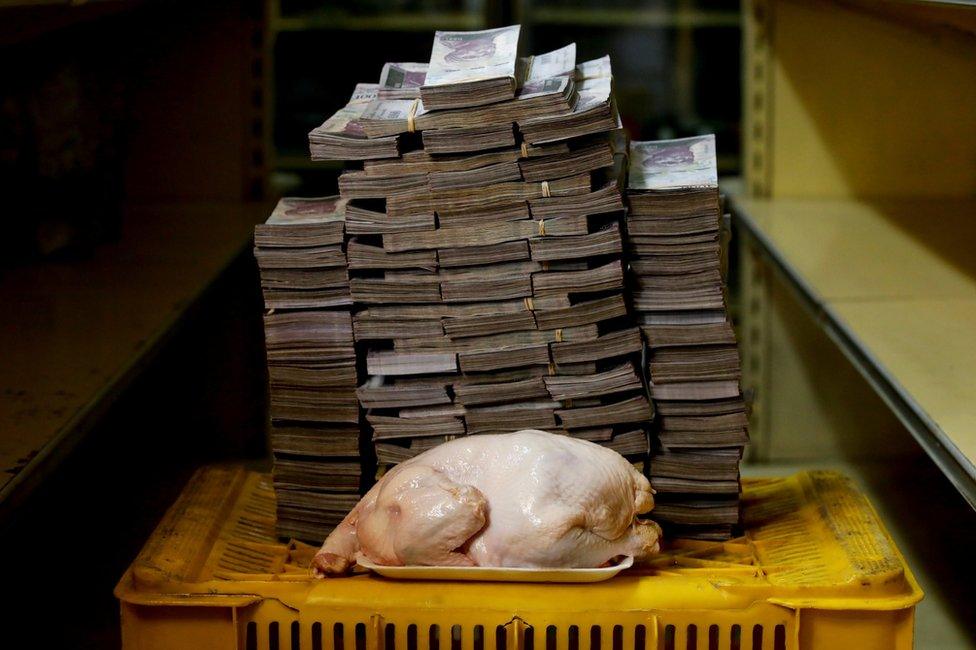
Last Thursday, a toilet roll cost 2,600,000 bolivars.
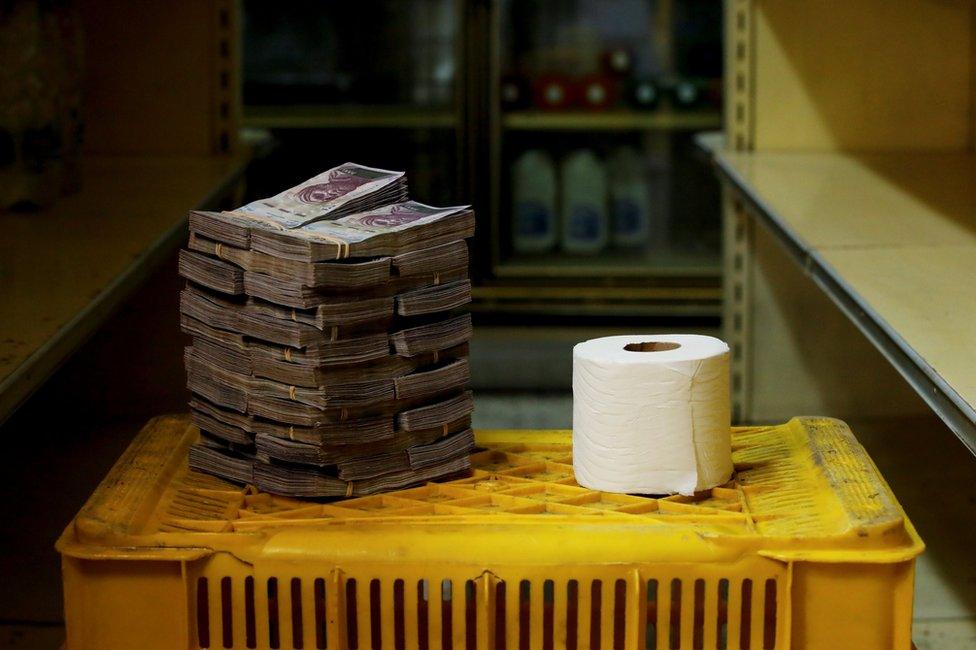
Three million bolivars for these carrots.
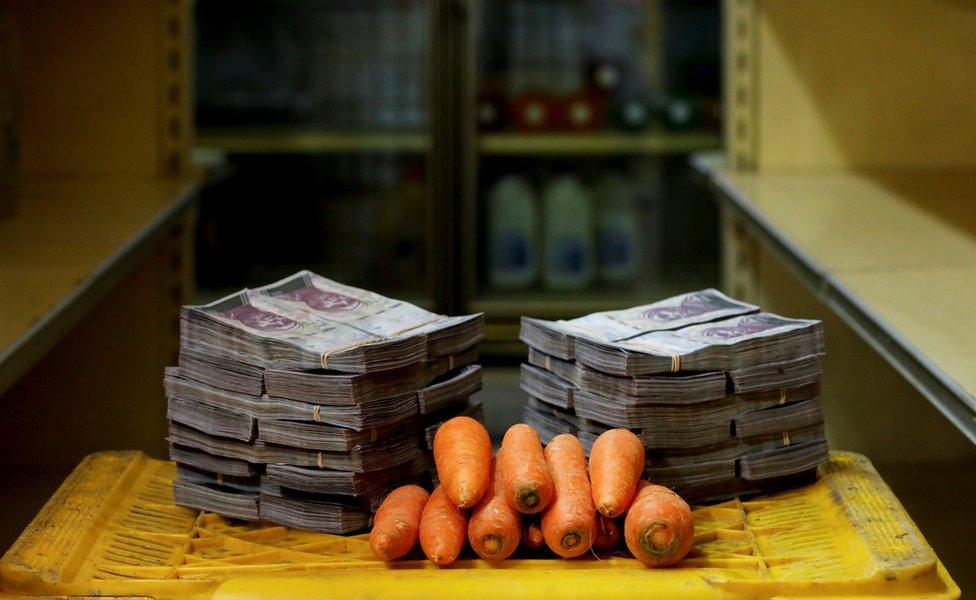
Venezuelans have been stocking their homes with food before the measures take effect on Monday, amid concerns that confusion and overburdened banking systems could make trade impossible.
A packet of 1kg of rice cost 2,500,000 bolivars.
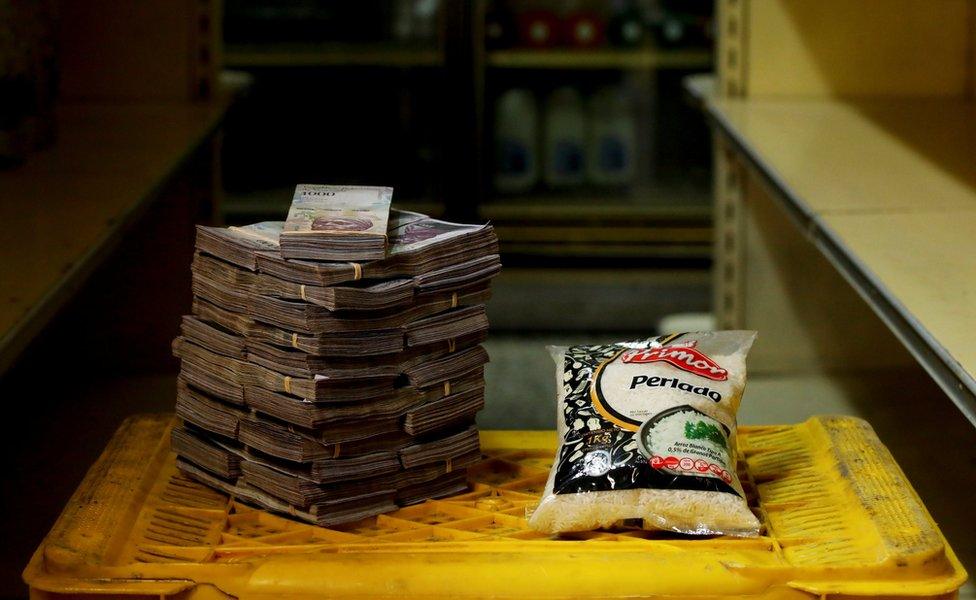
In July this year inflation hit 82,700%.
Alicia Ramirez, 38, a business administrator, spoke to Reuters in a supermarket in the western city of Maracaibo: "I came to buy vegetables, but I'm leaving because I'm not going to wait in this line.
"People are going crazy."
For a packet of sanitary pads you need 3,500,000 bolivars.
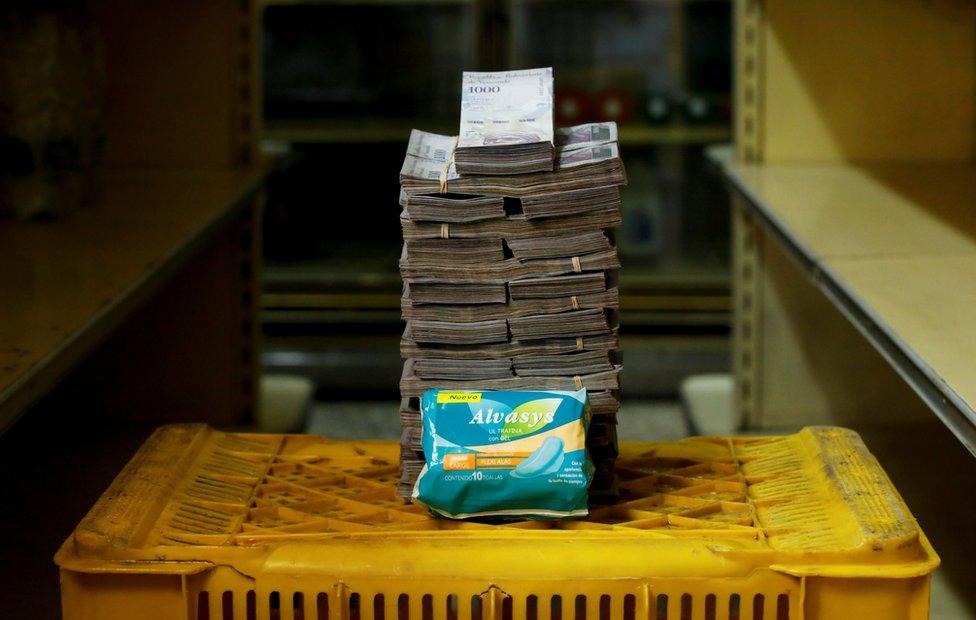
A kilo of tomatoes? That'll be 5,000,000 bolivars.
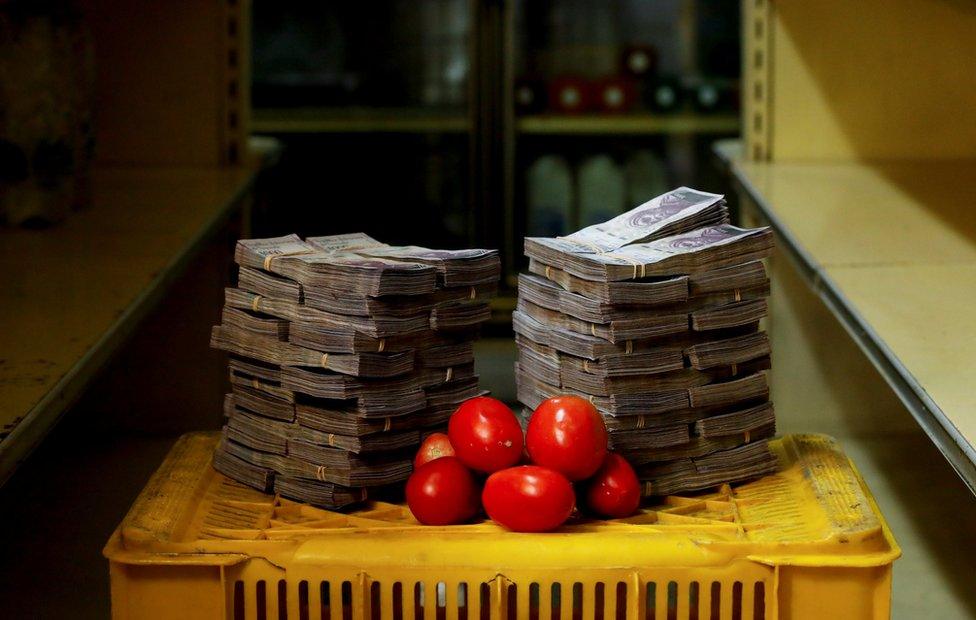
Monday has been declared as a public holiday, the same day as internet banking operations are halted for several hours and a new set of notes with lower denominations are introduced.
A kilogram of cheese is pictured next to 7,500,000 bolivars.
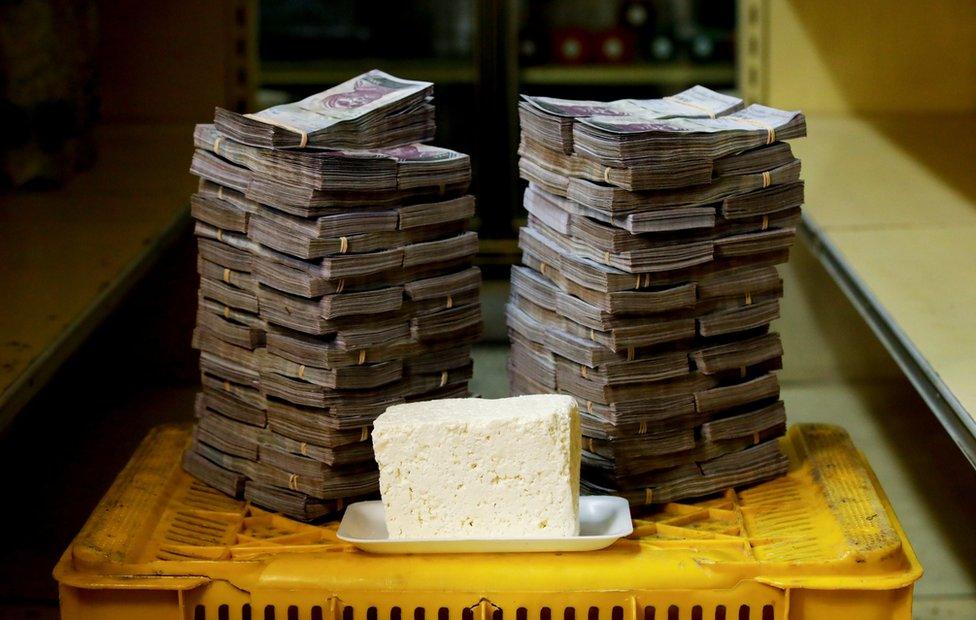

Read more on Venezuela:

Nappies could be purchased for 8,000,000 bolivars.
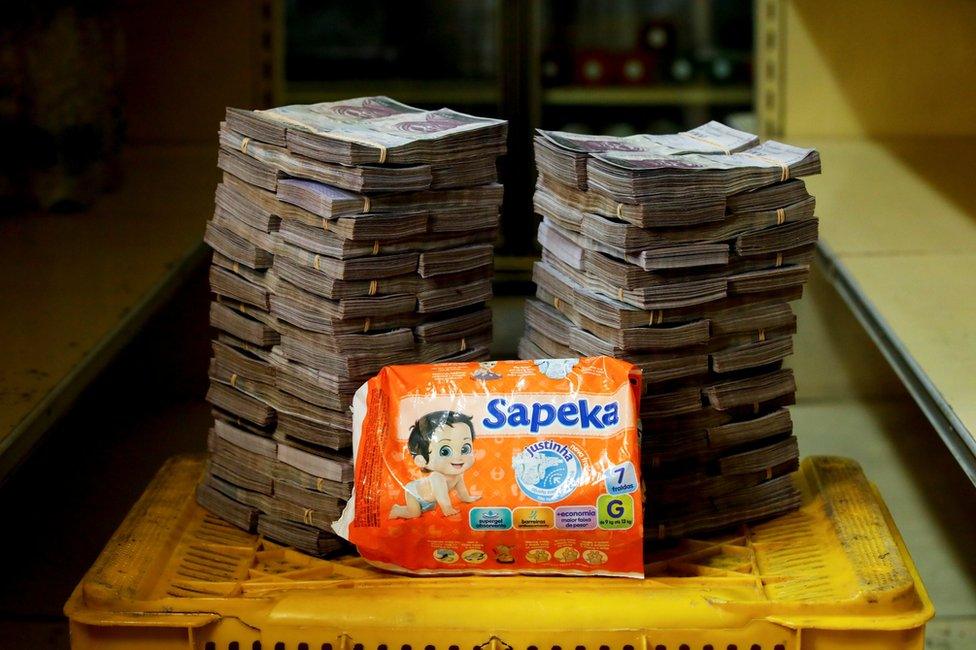
And a kilogram of meat cost 9,500,000 bolivars.
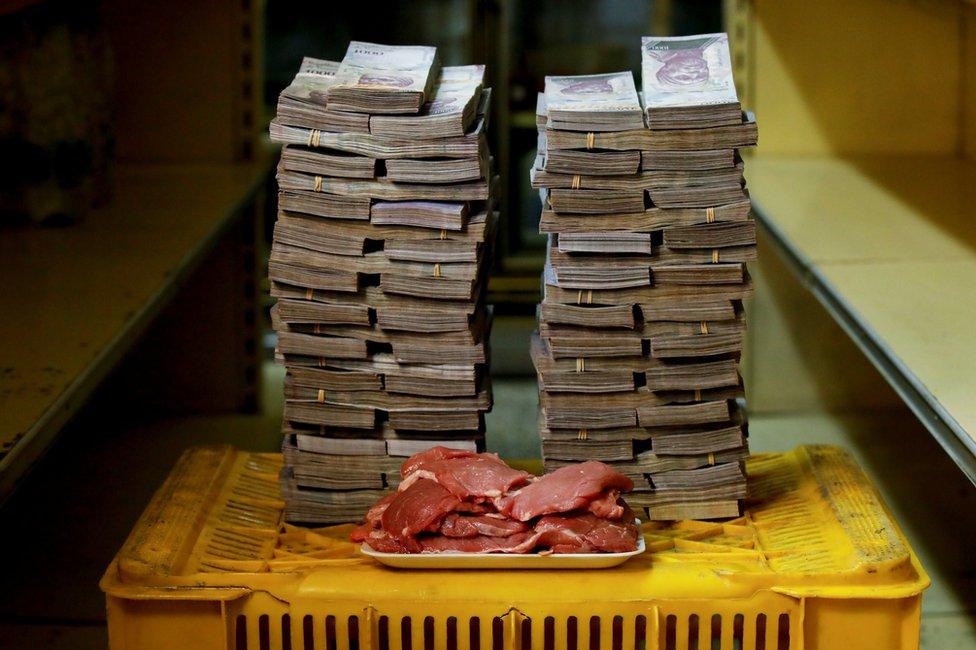
.
- Published20 August 2018
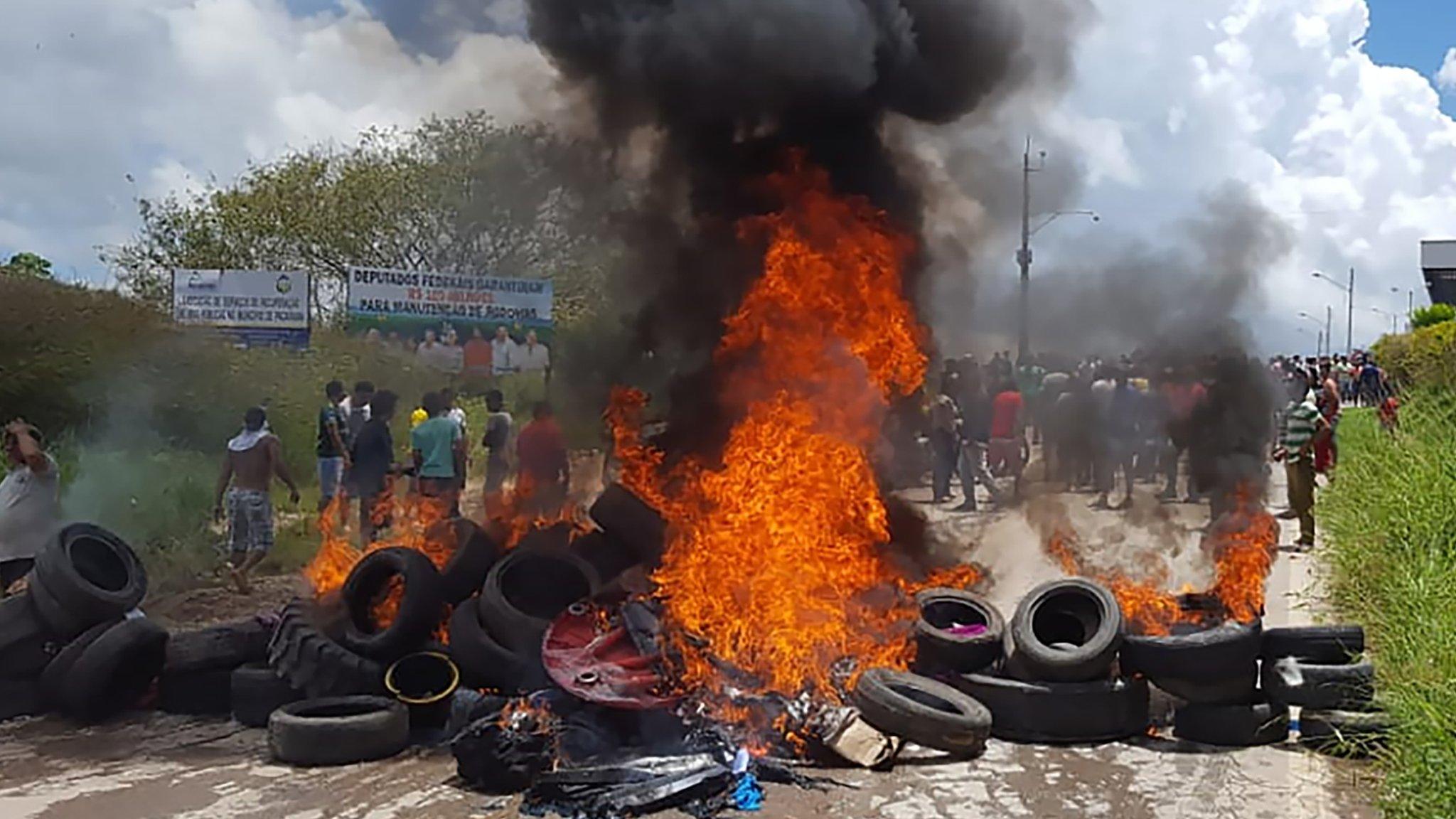
- Published14 August 2018
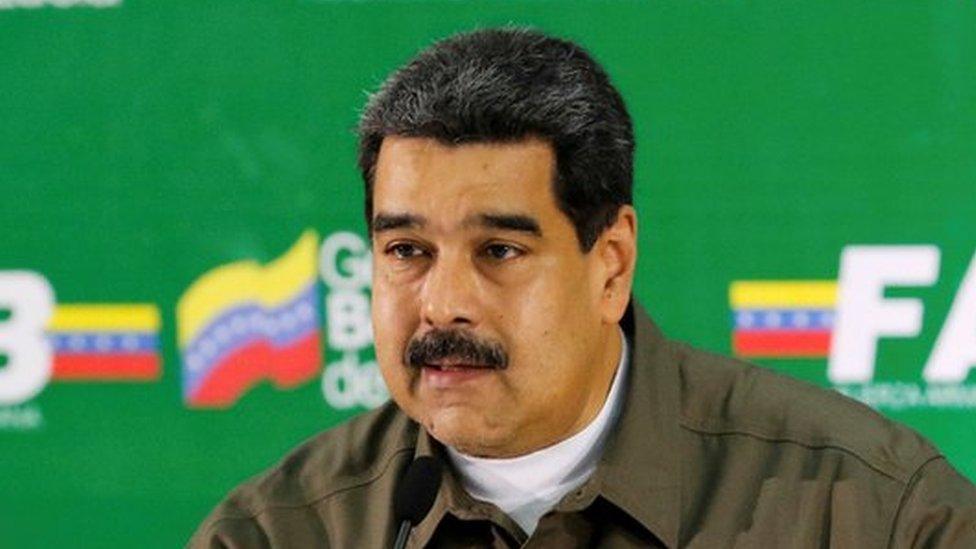
- Published12 August 2018
